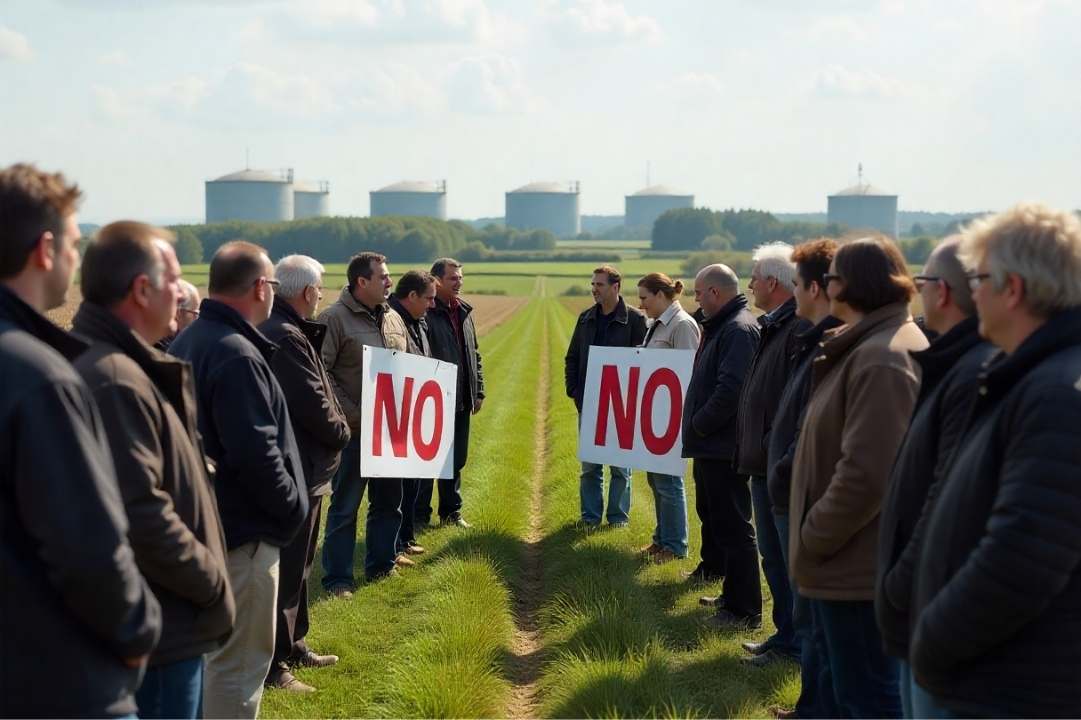Author: Amanda Pérez Pérez | Sustainability and CSR consultant at EHS Techniques
If you want my team to accompany you in the advice and guidance to achieve these objectives, thus ensuring the viability of business in the medium term, click here and let’s start together
The slogan “Neither in your town nor in mine” has become the common cry of many neighborhood platforms in Spain against the installation of biogas plants.
Although these infrastructures are part of the energy transition and decarbonization objectives, the reality is that their arrival in the territory is generating strong social protest.
Why? Because projects, in too many cases, are perceived as imposed from outside, without sufficient transparency or dialogue with local communities. The consequence: organized resistance.
In regions such as Murcia, with more than 40 projects in the pipeline, dozens of neighborhood platforms have emerged denouncing the impact on air quality, water use and the risk of concentrating nuisance activities in rural areas.
Castilla y León and Castilla La Mancha, associations from different towns have joined forces to demand more detailed impact studies and to demand that these projects are not imposed on areas already suffering from depopulation.
In some cases, even city councils have decided to halt projects in the pipeline, reflecting social pressure and the lack of territorial consensus.
The slogan “Neither in your town nor in mine” reflects this sense of injustice: that plants should be neither here nor there, because there are no clear benefits for those who live with them.
The creation of the StopBiogas national coordination has also given a common framework to the opposition, making it visible that the rejection is not an isolated case, but a movement that extends throughout Spain.
What lies behind the rejection
Beyond the slogan, there are three key factors:
1- Lack of clear and accessible information, the communities do not understand what biogas contributes to the perceived risks.
2- Lack of territorial integration, many projects are designed without analyzing the real capacity of the infrastructure, the social fabric or the local environmental balance.
3- Lack of visible benefits, if the neighbors do not see stable employment, local development or improvements for the municipality, they only perceive inconveniences.
What can be done?
The energy transition requires technologies such as biogas, but it will not be achieved against the territories, but with them.
This is where a well-designed social strategy makes a difference:
– Identify and listen to local stakeholders from the beginning.
– Clearly explain impacts, benefits and mitigation measures.
– Design plans that leave value in the territory (qualified employment, support for local economy, infrastructure improvements).
– Create permanent participation channels so that neighbors are not mere observers, but an active part of the process.
Because in the end, what the slogan “Neither in your town nor in mine” shows is not a rejection of the energy transition, but a rejection of projects disconnected from the social and territorial reality.
How EHS Techniques can help
We help promoters and developers so that their projects prevent social opposition, generating trust and shared value.
– We design social and territorial strategies adapted to each context.
– We document and report economic and territorial impact.
– We facilitate community participation and dialogue processes that prevent conflicts.
– We turn social management into a competitive advantage to access permits, financing and investment.
The energy transition will only be viable if it is also social. We help your project to be part of the solution.
Company
The EHS Techniques team and its experience guarantee a close and flexible service adapted to our customers and the implementation of the most advanced technologies internationally at reasonable costs.
International experience
We have the international experience necessary to continue offering this service anywhere in the world. Contact us

 Español
Español
